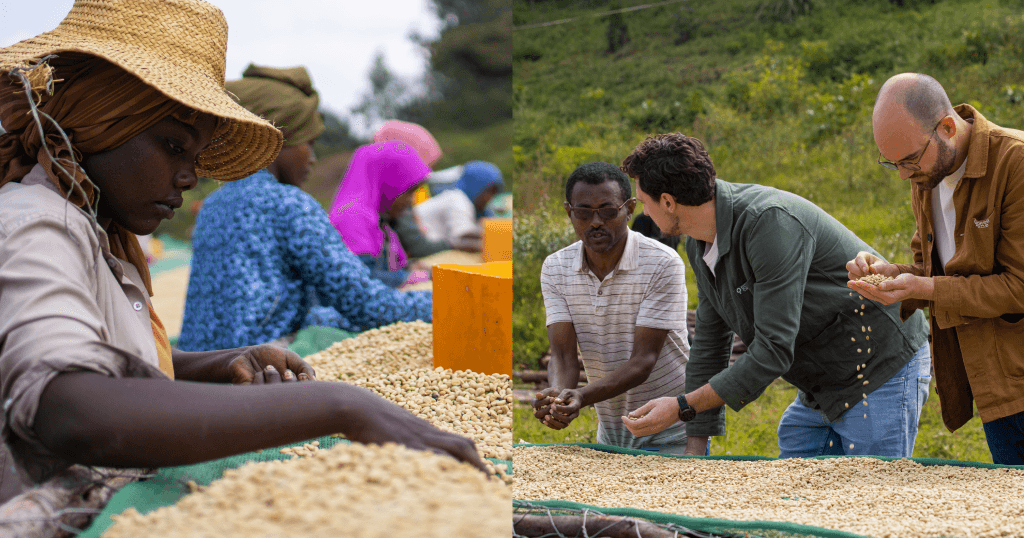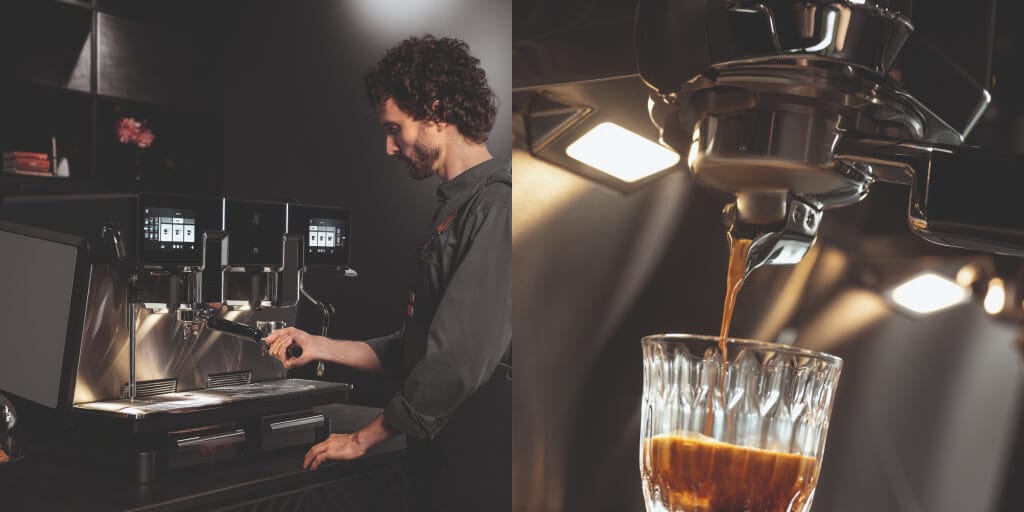The term “direct trade” is synonymous with specialty coffee. Established as a way to “do things differently” in an industry dominated by multinationals, it’s founded on the principle that when roasters, traders, and producers work closer together, the entire supply chain benefits.
In its early years, direct trade was considered a form of social responsibility. Roasters commit to paying higher prices for higher-quality coffee, supporting producers and communities in their efforts to reinvest in production. Over time, this builds trust and fosters a reciprocal working relationship.
Despite these good intentions, the direct trade model gradually became a superficial marketing strategy for some roasters. It provided consumers with the vague assurance that the coffee was ethically sourced but with little accountability.
Recently, record arabica futures have pushed more roasters to adopt direct trade practices, positioning them as a risk mitigation strategy. By having more control over their supply chains, roasters can manage costs more effectively.
Still, the social and ethical aspects of direct trade play a fundamental role in shaping specialty coffee, and they always will. I spoke to Coffee Circle’s Martin Elwert and Co Qua Lab’s Ansha Yassin and Moata Raya to find out why direct trade is about more than good business practices.
You may also like our article on what will change for roasters in 2025.
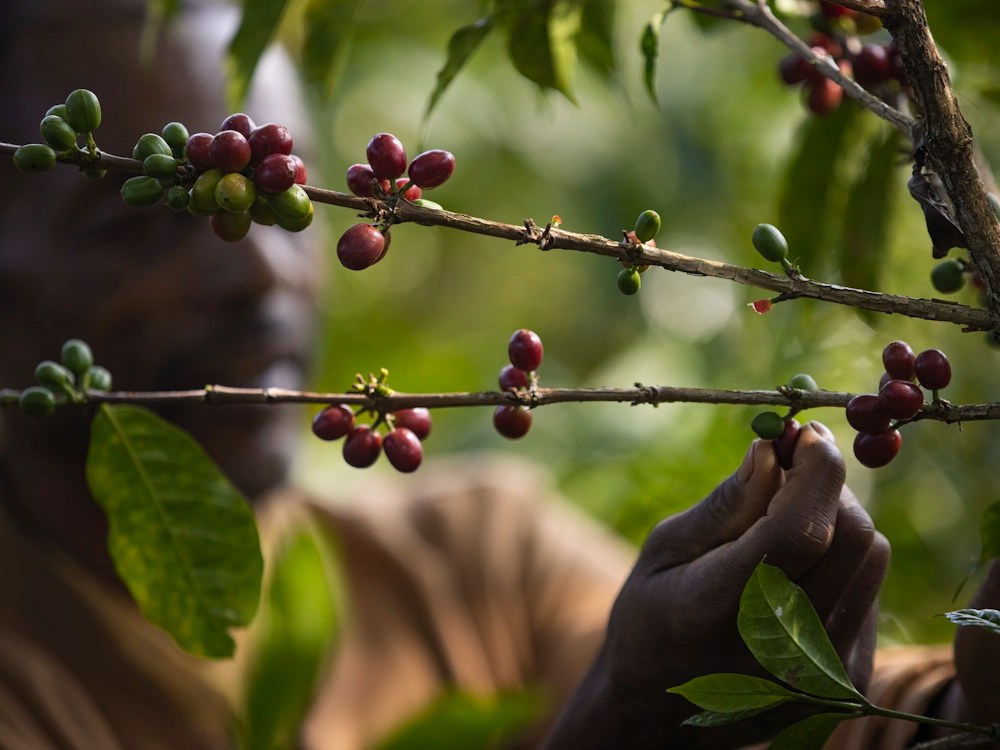
Direct trade has always been a part of specialty coffee
The coffee supply chain is long, meaning coffee passes through many hands as it moves from producer to consumer. Some estimates indicate that depending on origin and farm size, there can be as many as 20 intermediaries in the value chain.
Inevitably, the more intermediaries there are, the lower the prices will be for farmers. According to the International Trade Centre, many producers receive 10% of the total retail price of coffee, equating to approximately US 40 cents per cup.
For the 12.5 million smallholder farming families in the world, who grow up to 80% of the global coffee supply, these prices don’t allow them to cover the costs of production. Additionally, they keep communities below the poverty line, which forces them to turn away from coffee farming altogether.
Third wave and specialty coffee set out to change these market dynamics and secure a sustainable future for the industry. By trimming down supply chains and removing “unnecessary” intermediaries, producers can retain more value.
“As the name implies, direct trade is without the involvement of middlemen, leading to a shorter supply chain where the shipment of coffee goes directly to the buyer,” says Ansha Yassin, the managing director and senior consultant at Co Qua Lab in Ethiopia. The organisation works as an advisor to Coffee Circle, a B Corp-certified specialty coffee roaster in Berlin, Germany.
“Producers can negotiate prices, and buyers can easily trace the product. It fosters trust-based, long-term relationships for mutual benefit and allows producers to communicate with buyers without barriers, ensuring sustainable product quality year after year.”
Demand grows
When implemented in the late 1990s and early 2000s, the benefits of direct trade quickly became apparent.
Under this model, producers receive several times more than they usually would, earning a living wage that covers the costs of production and supports their livelihoods. They also avoid being hit by hidden fees, such as processing and transport, further minimising the high levels of risk they often deal with.
For roasters, it opens up new possibilities to connect with the people who grow coffee. They can exchange knowledge and ideas about processing, flavour profiles, cup scores, roast development, and changing market demand.
“When we talk about direct trade at Coffee Circle, we mean building a personal relationship between producers and roasters. This includes mutual respect and understanding of social and economic circumstances and challenges,” says Martin Elwert, the roaster’s CEO and founder.
“It means relationship on an eye-level, paying sustainable prices, and building trustful business partnerships over years.”
Consumers have also been pushing for better transparency and visibility across the coffee value chain. Roasters can leverage direct trade practices to demonstrate their close relationships with origin, building consumer trust and strengthening their knowledge of the supply chain. This, in theory, increases consumer appreciation of coffee and leads to less resistance to paying higher prices.
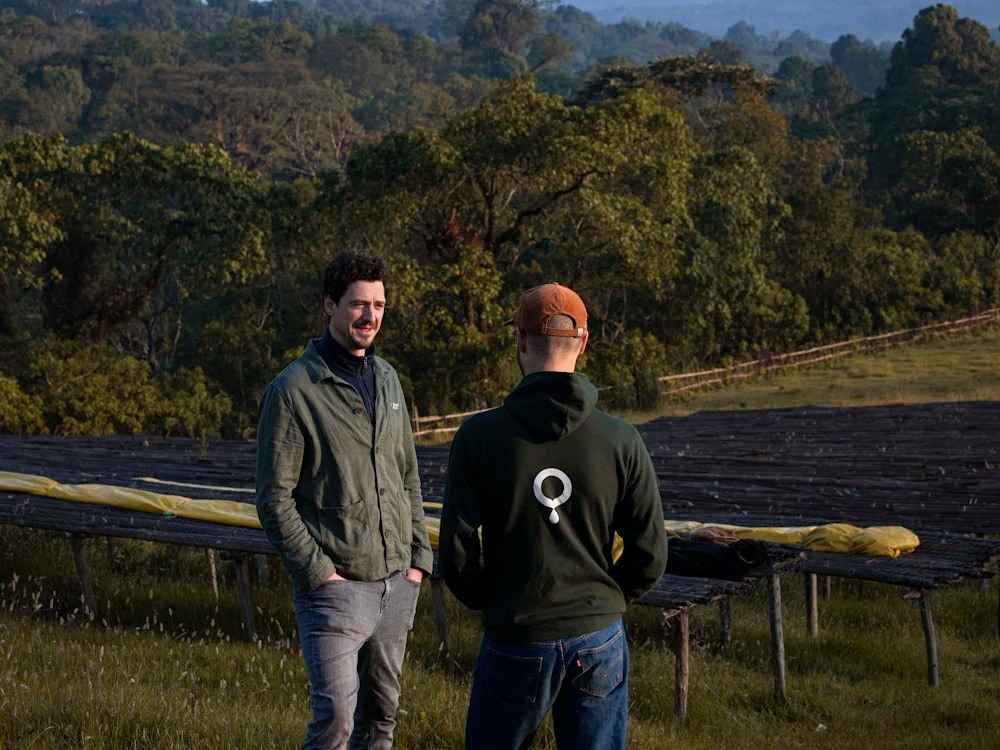
But its role in the industry has changed
Since its inception, direct trade has shaped roasters’ sourcing practices and bridged the gap between producers and consumers. Many celebrate this model for these reasons, emphasising how it promotes the positive aspects of the industry.
It’s reductive, however, to claim that direct trade practices aren’t problematic. The term has no formal definition or certification, meaning roasters don’t have to substantiate claims. This makes it challenging for consumers to understand what they truly entail, blurring the lines between a marketing gimmick and a signpost of genuine impact.
“Direct trade is not a clearly defined and protected term, so anyone can use it in their marketing claims,” Martin says. “But industry stakeholders have learned a lot in the past 20 years, and the longer you work in specialty coffee, the better you understand who truly cares and who is riding the trend.”
More recently, following an unprecedented high of US $4.30/lb in the arabica market, the direct trade model has emerged as a strategic sourcing approach. Bypassing traditional intermediaries and operating outside of the C market means producers can set their own prices. Roasters, meanwhile, have a closer eye on their entire supply chains, allowing them to manage partnerships more effectively.
“We believe that taking care of internal and external stakeholders, employees, customers, producers, and partners of any kind, is good business,” Martin tells me. “It’s obviously not a silver bullet; doing things the right way over a long period of time is hard work.
“Choosing the right direct trade partners means making decisions for the long-term, which means taking risks. However, if you manage to build trustful relationships, you can avoid short-term price, environmental, and long-term economic risk,” he adds. “If you approach partnerships with empathy, optimism, and strategic thinking, then it pays off for all parties.”
Serving a dual purpose
Direct trade is no longer just a social responsibility project. It has become a strategic business initiative that gives producers and roasters more control and oversight over their supply chains.
“If you manage to build strong direct trade relationships, you can reduce your market risks,” Martin tells me. “You can find partners who understand and respect your situation and challenges. Still, it requires investment from both sides; this is how equal relationships work.”
For a sustainable and equitable future for the coffee industry, it is increasingly vital that farmers have the financial capacity to invest in production. Recent research shows that rising global temperatures decrease yields, exacerbating volatile coffee prices and threatening production as we know it.
However, this is far from what happens in reality. Despite laws and regulations in place, producers are rarely able to invest in their farms, including replanting old trees and switching to regenerative agricultural practices.
“Depending on the country, some cooperative bylaws often state that 70% of the net profits are paid back to members based on their share and the volume of cherries they deliver, with an additional 5% allocated for community development,” Ansha explains.
But given the rising number of challenges that producers are facing, this often isn’t enough.
Coffee Circle operates the Coffee Circle Foundation e.V. which is an integral part of its business model. For every kilogram of coffee sold, the roaster invests €1 in access to clean drinking water, education, and agricultural training in coffee-producing regions. Since 2010, Coffee Circle has invested €5 million across 19 projects in coffee-growing communities.
“These projects, including WASH (water, sanitation, and hygiene) stations and wet mills, have a direct impact on the social, health, education, and economic wellness of farming communities,” Ansha says.
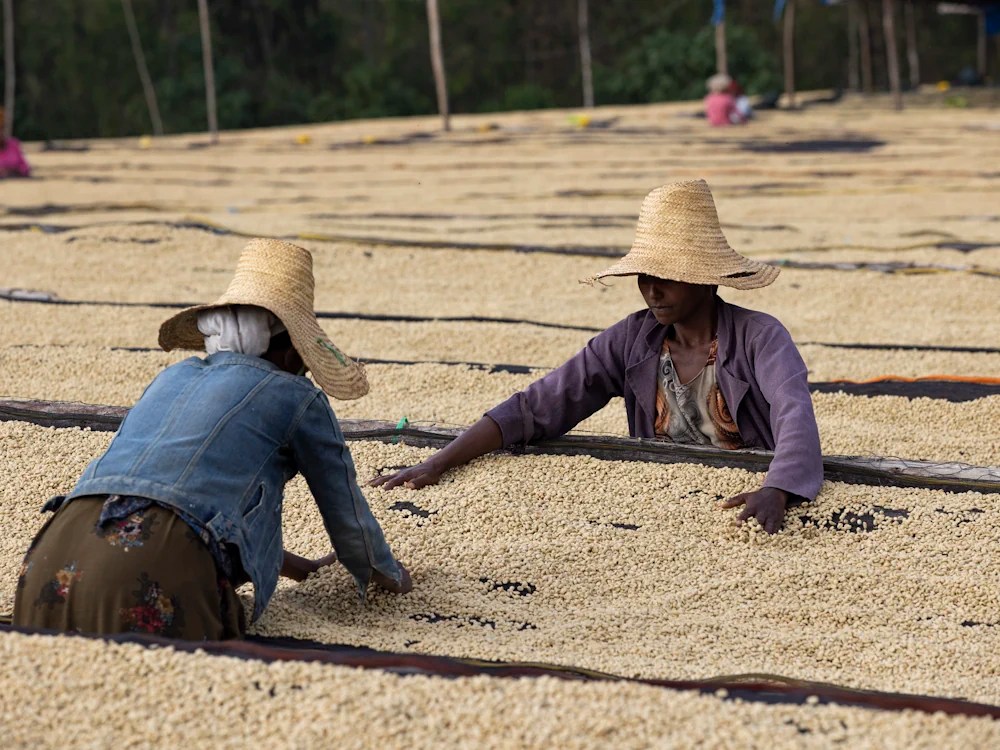
Why direct trade needs to stay true to its values
The traditional coffee supply chain was designed to benefit intermediaries the most. Even with a record C price, producers still aren’t receiving enough money to invest in their farms and improve their livelihoods.
Moreover, many smallholder farmers are often not aware of the market value of their coffees. As a result, they receive low prices, pushing them further away from coffee production towards planting crops like avocados, which have higher returns on investment.
“Coffee Circle started in 2010 with the vision to reduce poverty in rural populations in Ethiopia. We invest €1/kg of coffee sold in projects at origin, channelling the funds through our foundation,” Martin says. “We analysed the needs of the communities we work with. There was no guaranteed access to clean water – a basic human right. The schools were minimally equipped, resulting in little motivation for teachers and poor attendance of local children.
“Education is a key driver for change, so we created our first Value Chain project, which organised cooperatives, built ten washing stations (including depulpers, fermentation tanks, and drying beds), conducted training, supported marketing activities, and distributed 180,000 seedlings,” he adds.
This underscores how the original mission and values of direct trade are still key to this day. Although the model has become a solid business practice, allowing roasters to understand precisely where their money is going, the social responsibility factors create a more resilient supply chain.
“Local communities have experienced significant positive changes through these projects, resulting in better infrastructure and improved quality of life,” says Moata Raya, the director of coffee and senior consultant at Co Qua Lab in Ethiopia. “Direct trade encourages hard work, culture, and traditions of the producers and their communities. Moreover, higher profit margins go to the producers, which benefits the community at large.”
Supporting communities means investing in coffee production
Looking ahead, rather than being viewed as a charitable endeavour or superficial marketing strategy, direct trade will become a solid business model that encourages accountability, shared value creation, and investment in the future of the coffee industry.
“Without direct trade relationships, roasters can’t fully understand the situation and challenges of coffee farmers and their communities. If you want to contribute to positive change, you need to be present and build relationships,” Martin says.
“In turn, you develop a commitment to reliable quality over the years. You can also jointly invest in measures to increase quality and secure volume. Through a feedback loop, you can discuss special fermentations, explain your customers’ demands, and talk about your challenges as a business.”
Ultimately, this means meeting and supporting the needs of coffee-growing communities.
“In the Democratic Republic of Congo, Coffee Circle invests in sustainable growing practices and processing techniques to generate sustainable living income,” Martin tells me. “We have helped renovate washing stations and drying beds and provide training on agronomy topics such as pruning, making organic compost, and implementing intercropping.
“We also established a cupping lab, allowing producers to analyse their coffee quality, which they couldn’t do beforehand,” he adds. “In 2024, in partnership with Vuna Origin Consulting, the Coffee Circle Vision Fund set up a €500,000 grant to support six projects driving social change and sustainability in coffee communities worldwide.”
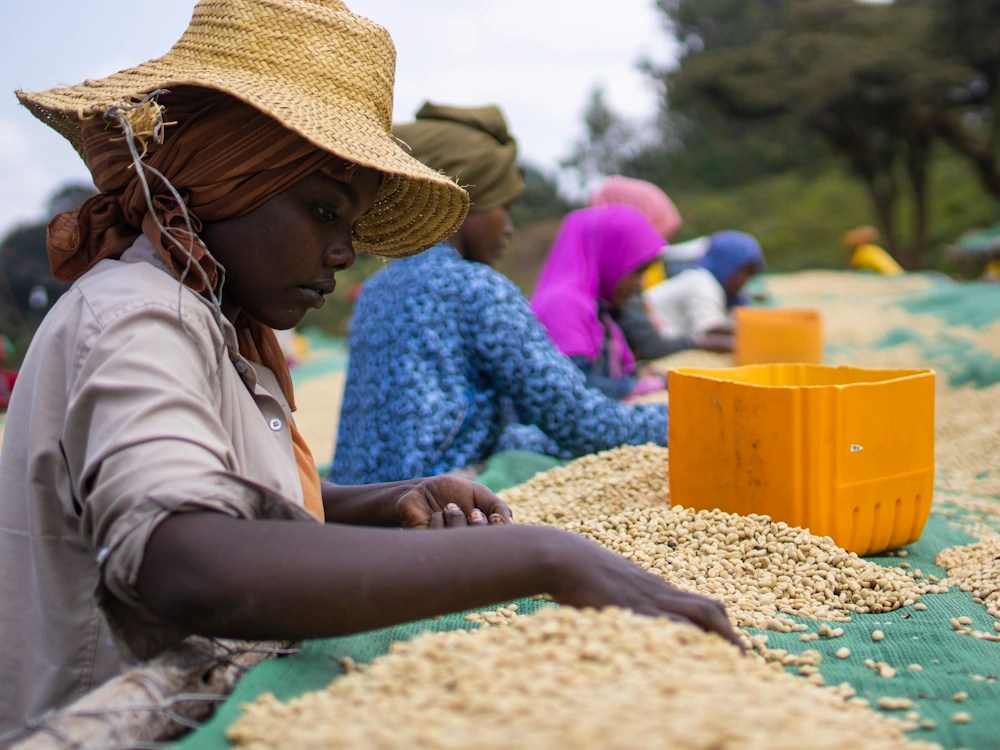
While direct trade initially emerged, it was intended as a means to connect with producers and roasters. Today, however, producers are increasingly seeking out roasters to build relationships, turning the tide to create a more equitable supply chain.
“Different actors along the value chain have such little knowledge of the step before them, but there is so much to learn from each other,” Martin concludes. “The more we know from seed to cup, the better we can overcome challenges.”
Enjoyed this? Then read our article on why market volatility means roasters need to be strategic with prices.
Photo credits: Coffee Circle
Perfect Daily Grind
Please note: Coffee Circle is a sponsor of Perfect Daily Grind.
Want to read more articles like this? Sign up for our newsletter!
Source link

